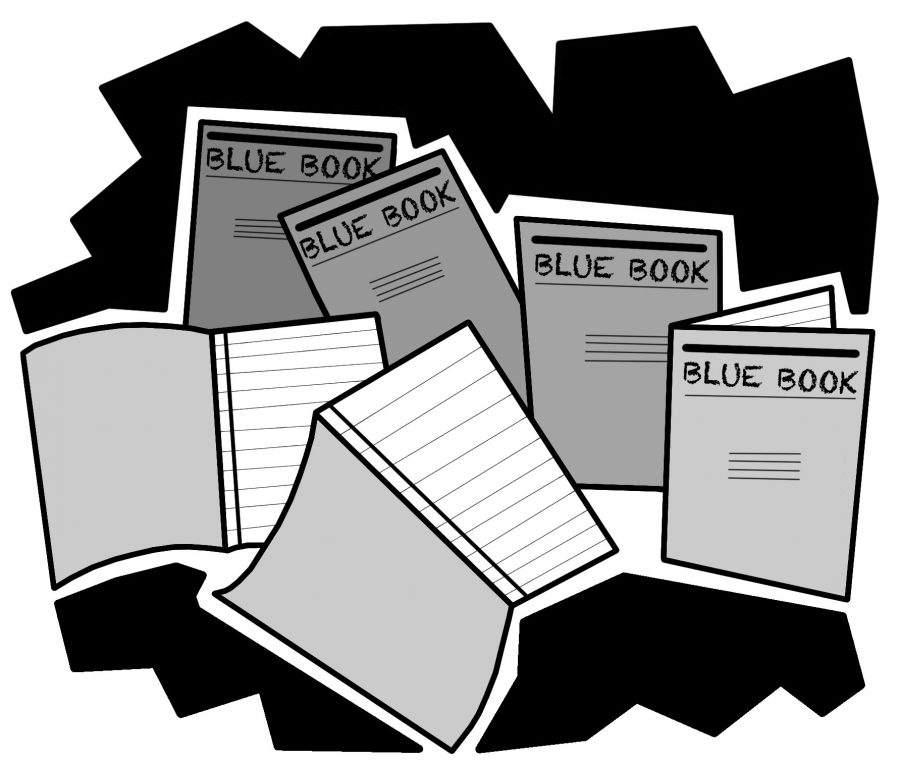We all know what it’s like: You walk into an exam anxiously checking your notes one last time, making sure you have a pen, and then it happens. Panic strikes your heart as you glance around the room and notice that everyone is getting out their Blue Books. You check your backpack to see if one has magically appeared — it hasn’t. And nobody has an extra. The teacher starts to pass out the test. God himself seems to have forgotten you.
“There has to be a better way,” you think, as you solemnly exit the classroom and begin your long sprint to the Blue Book section of Jester Market.
Fortunately, there is a better way. Professors should be able to provide Blue Books to their students at the time and place of the exam. This would prevent the aforementioned tragedy from happening by delineating the responsibility to one dedicated person. If you task a large group of students with obtaining this forgettable little book some are inevitably doomed to forget it.
UT already has a system in place to distribute Scantrons to professors upon request, so adding Blue Books would be feasible. Under the current system, a professor’s department or college purchases Scantrons from UT Document Solutions who themselves purchase Scantrons from the larger corporations who manufacture them. The departments have their own budget delegated to them by the University and individual donors which they use to pay for Scantrons. Adding Blue Books to this already-existing infrastructure would be a cheap and straightforward way to organize the currently chaotic Blue Book exam experience.
All it would take is for each of the three links along this distribution chain (professors, their departments and UT Document Solutions) to agree to incorporating Blue Books.
UT Document Solutions, the engine of the whole operation, said that they “would welcome any discussions to provide additional services.” This is a good sign, but they, unlike the other two parts of the distribution chain, are one team operating as a single unit. On the other side, there are dozens of departments and hundreds of professors, all operating independently from each other.
If multiple people request that Blue Books, be provided for exams, those in charge will listen. Students can help by asking professors, professors can help by asking their departments, and if UT Document Solutions sees there is a demand, implementing Blue Books into the system will be as easy as placing an order.
Some may say that our current Blue Book distribution system of every man for himself is an important part of what college is all about: responsibility. It is true that an opportunity for self-sufficiency is a valuable gift, but it is important that we find the right balance between encouraging meaningful growth and inducing panic attacks. The way we currently get Blue Books adds an unnecessary barrier to our exams, and there’s no reason we shouldn’t pursue an easier and more efficient solution.
This issue may seem small, but, in a way, that’s the point. Nobody benefits when a student’s success is decided by such a small and insignificant book, rather than their grasp of the knowledge required. Enough people have made that long sprint to Jester Market. It’s time we rethought the way Blue Books are distributed.
Ζαher is a government and European Thought sophomore from Hudson.


















